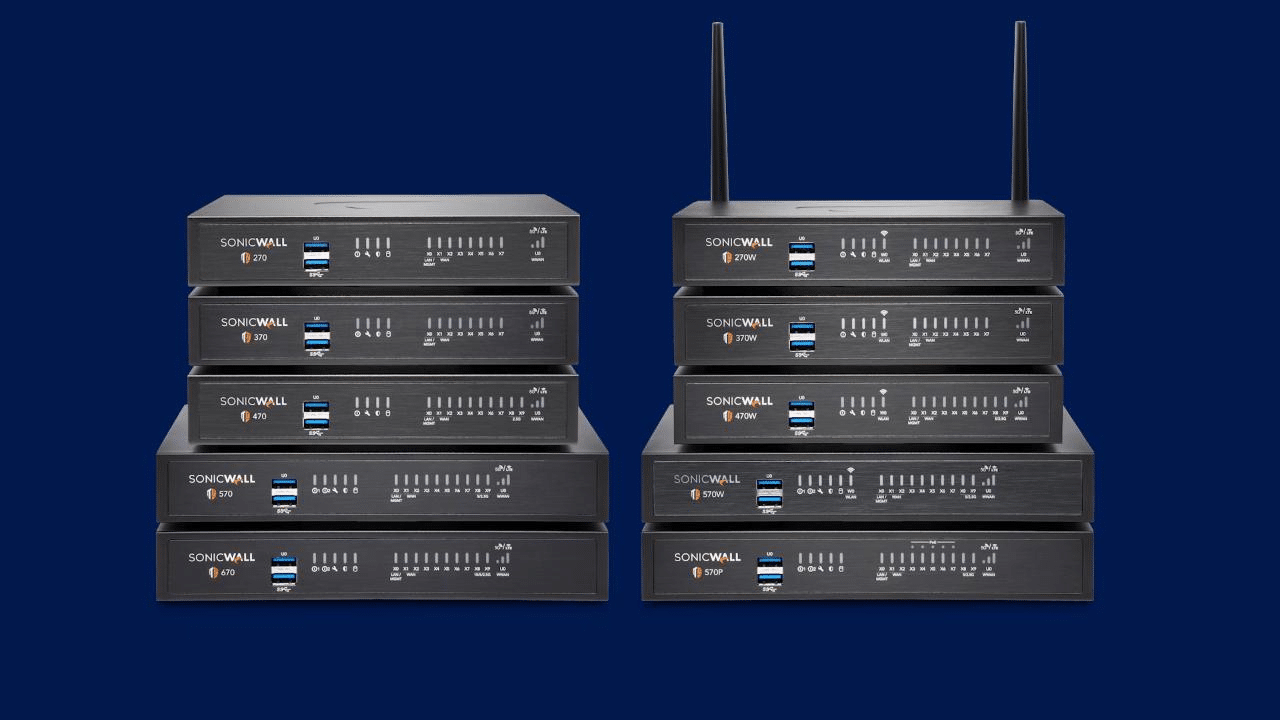What is a firewall and do you need one? One answer to that question is yes, you should have one as part of your network. Here’s why: A firewall is stationed between a network or a computer and a different network, like the internet. It controls the network traffic coming in and going out of the computer or network. If you do not have a firewall, virtually any data can exit your computer or network, and virtually any individual or program can come in by using your computer as a portal.
You are probably already using a built-in software firewall on your computer, even if you don’t know it. Read on to learn about software and hardware firewalls, the different types, and why they’re a necessity.
Software vs. Hardware Firewalls
A firewall is a security device that represents an essential part of a company’s cybersecurity. It can be implemented using software or hardware, depending on the needs of the organization.
A software firewall is a program that you install on your computer to monitor and control incoming and outgoing network traffic. It is often installed by default on computers, laptops and mobile devices. Microsoft Defender Firewall on Windows 10/11 is an example of this, and it is turned on by default when you install Windows.
Hardware firewalls are standalone physical appliances, often rack mounted, that sit between your network and the internet. For larger companies, hardware firewalls are a security solution that allows you to protect your entire network from the outside world with a single physical device.
In general, a hardware firewall offers better protection than its software counterpart since it can handle multiple tasks at the same time. Additionally, a hardware firewall has more capacity for storing rules and configurations. Besides that, it will not slow down your computer or take up valuable memory space like a software firewall does.
Types of Firewalls
There are a number of firewall types that can be used to protect computers and networks, including:
Packet-filtering firewalls: A packet filtering firewall operates at the network layer and filters traffic based on source and destination addresses, port numbers and protocols. Packet filtering is one of the most basic types of firewalls, but it does have some drawbacks – this type of firewall is vulnerable to IP spoofing attacks, in which hackers masquerade as authorized users to bypass the firewall’s security checks.
Proxy firewalls (application-level gateways): This type of firewall uses an application layer gateway, which places the firewall between two networks while creating proxies for each network-based application service. The application proxy firewall can effectively inspect traffic from all applications, but this type of firewall is vulnerable to attacks at the application layer because it requires many specific proxy services that must be constantly updated. It also limits the number of users who can access the network at once.
Stateful inspection firewalls: A stateful inspection firewall examines each packet and its relationship to other packets. It focuses on the “state” of a connection, meaning it is aware of any active connections and will use rules to determine whether or not to allow a packet through. This type of firewall cannot block packets that are part of an established connection.
Circuit-level gateways: A circuit-level gateway is a type of firewall that works by verifying the transmission control protocol (TCP) handshake. This TCP handshake check is designed to make sure that the session the packet is from is legitimate. A circuit-level gateway will often be able to verify the TCP handshake without seeing any data packets, making this type of firewall very fast and efficient. However, the downside to this speed and efficiency is that circuit-level gateways are incapable of verifying the content of the data being sent, so they can only prevent certain types of attacks that don’t use encrypted protocols or that use TCP or User Datagram Protocol (UDP).
What Are The Advantages Of Having One?
Advantages to having a firewall set up as part of your organization’s IT infrastructure include the following:
- They are easy to install and operate
- Since they are installed at the gateway or entry point into your network, they do not require changes in your existing network
- They allow only authorized traffic through it, hence providing security to your network
- Prevents virus/malware attacks (alongside a good antivirus program)
- They can be configured for blocking/allowing specific ports and traffic based on application and service requirements
Takeaway
Firewalls are extremely useful and very efficient tools which can help organizations prevent cyber crimes. Using firewalls in such a manner saves money, time and effort. Firewalls can be considered as one of the key components in the security subsystem of any computer network.
Every business needs technology. Is your IT up to par?
If you’re trying to run a business but you don’t want to deal with the IT part, that’s where we come in! Shartega IT is a managed IT service provider (MSP) that can provide you with all of the IT essentials at a flat-rate monthly subscription price. Our services include a 24/7 help desk team, network monitoring, hardware and software procurement, breach detection, cloud backups, and more. To learn more or schedule a meeting with us, click below.





